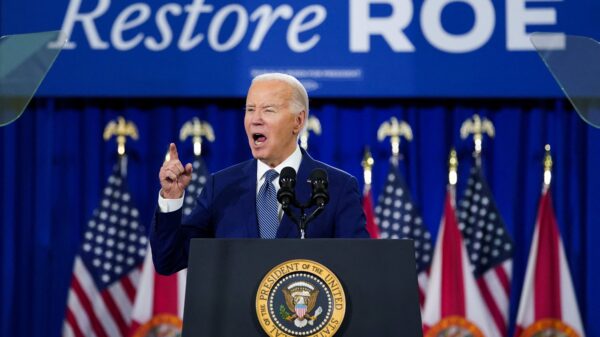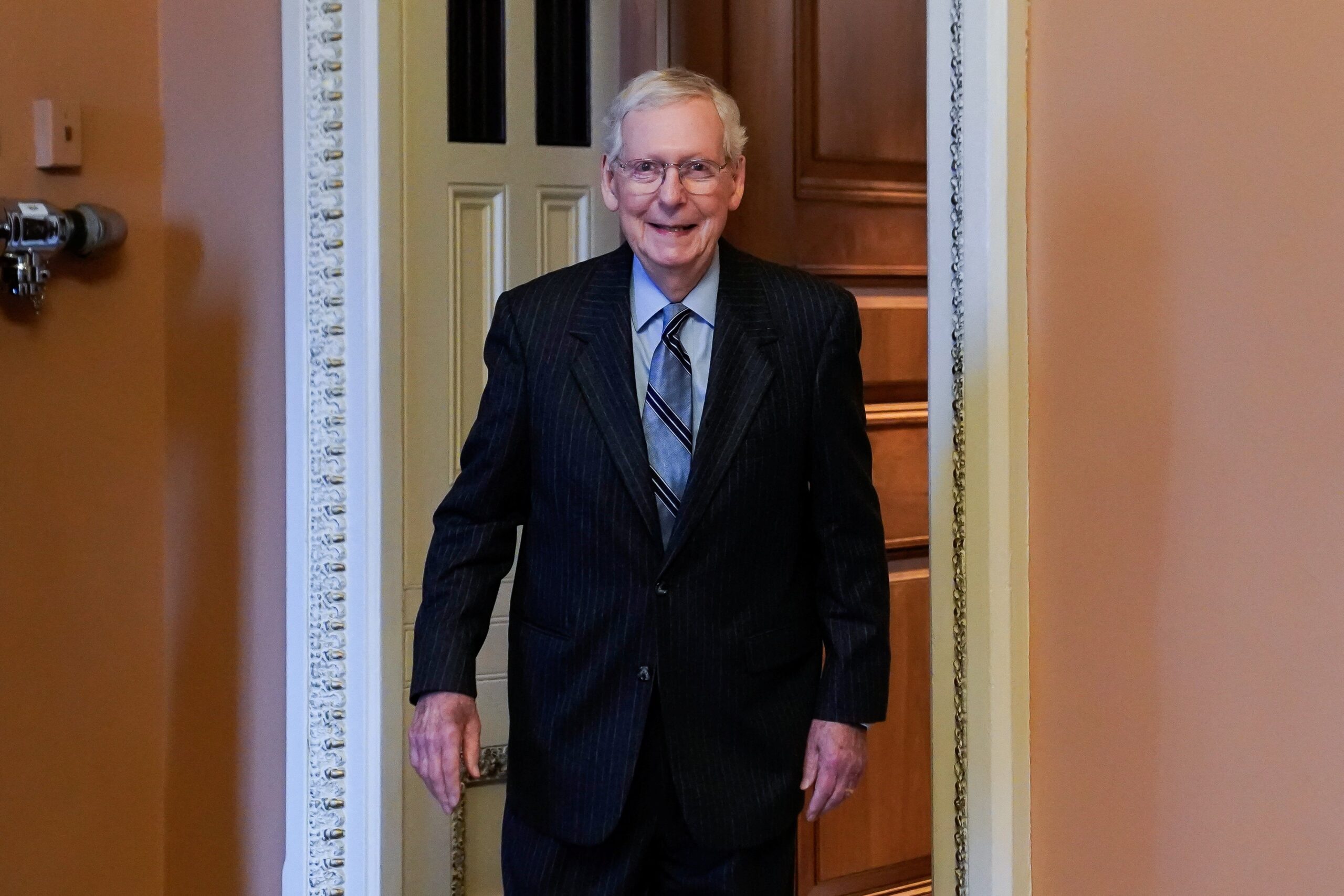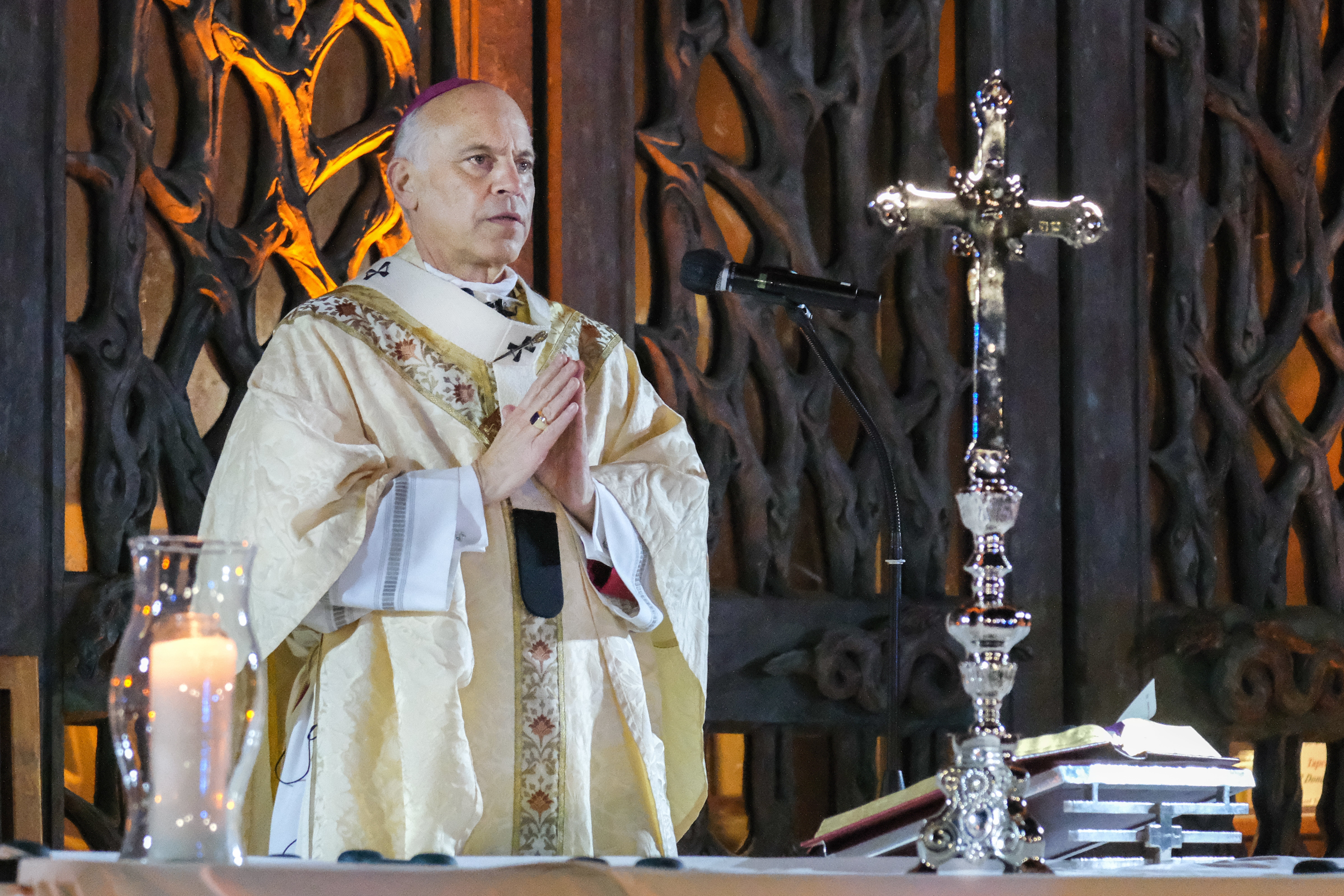WASHINGTON (OSV News) — Sen. Mitch McConnell, R-Ky., the longest-serving Senate leader in history, will step down from that position after the November election, he announced Feb. 28.
Also in Washington the same week, the Supreme Court heard oral arguments in a case concerning a federal ban on gun bump stocks, the GOP grappled with an Alabama court ruling concerning IVF and a federal judge blocked a controversial Texas law making crossing that state’s border without authorization a state crime separate from a federal one.
McConnell to step down as Republican Senate leader after November election
McConnell’s announcement came as former President Donald Trump appears poised to win the Republican Party’s nomination to the White House for the third time. McConnell and Trump reportedly have not spoken since December 2020, when McConnell refused to aid Trump’s efforts to overturn the 2020 election over Trump’s unfounded claims that President Joe Biden’s victory was the product of systemic fraud. In the aftermath of the Jan. 6, 2021, riot at the U.S. Capitol, McConnell and Senate Majority Leader Chuck Schumer, D-N.Y., worked closely to resume their work certifying the election. Nevertheless, McConnell did not support an effort to impeach Trump for his conduct in the final days of his presidency.
McConnell’s most lasting legacy may prove to be his efforts to shape the federal judiciary, notably including declining to confirm Merrick Garland, nominated by then-President Barack Obama in 2016, to the court, arguing such appointments should not take place in election years. Trump later appointed three of the current court’s justices after such nominations became a rallying point in that year’s election.
Perhaps the foremost consequence of the Supreme Court’s changed makeup was the 2022 Dobbs v. Jackson Women’s Health Organization decision that overturned the court’s abortion precedent and returned the matter to the legislative branch.
McConnell, 82, suffered multiple episodes last year where he appeared to freeze while speaking on camera. Aides said his decision to step down was not related to his health.
“One of life’s most underappreciated talents is to know when it’s time to move on to life’s next chapter,” he said in remarks on the Senate floor Feb. 28 announcing his decision.
In a statement the same day, Biden said he and McConnell could always speak with each other “honestly.”
“American Democracy is based on elected representatives coming together and bridging their different points of view to find common ground on behalf of the American people,” Biden said.
“I’m proud that my friend Mitch McConnell and I have been able to do that for many years, working together in good faith even though we have many political disagreements.”
GOP grapples with IVF controversy
In the wake of a ruling by the Alabama Supreme Court that frozen embryos are children under the state’s wrongful death law, Republicans including Trump have sought to indicate their support for in vitro fertilization, an artificial method of human reproduction opposed by the church.
Senate Democrats introduced a bill they said would safeguard access to IVF, and sought to pass it by unanimous consent, a Senate procedure that expedites the process to pass legislation by considering the matter agreed upon if no senator objects.
But Sen. Cindy Hyde-Smith, R-Miss., blocked the bill, calling it in a statement Feb. 28 “a vast overreach that is full of poison pills that go way too far.”
“Far beyond ensuring legal access to IVF, the act explicitly waives the Religious Freedom Restoration Act and would subject religious and pro-life organizations to crippling lawsuits,” Hyde-Smith said.
In a possible sign of how the GOP plans to respond to the ruling, Alabama’s Sen. Katie Britt, who has voiced her support for IVF, will deliver the Republican rebuttal to the State of the Union address March 7.
Britt recently wrote on X, “Defending life and ensuring continued access to IVF services for loving parents are not mutually exclusive.”
“Ultimately, IVF helps create life and grow families, and it deserves the protection of the law,” she said.
However, the 1987 document from the Congregation (now Dicastery) for the Doctrine of the Faith known as “Donum Vitae” (“The Gift of Life”) states the church opposes in vitro fertilization and related practices, including gestational surrogacy, in part because “the connection between in vitro fertilization and the voluntary destruction of human embryos occurs too often.”
Issued by then-Cardinal Joseph Ratzinger, the future Pope Benedict XVI, the teaching named the “right to life and physical integrity from the moment of conception until death” and “the child’s right to be conceived, brought into the world and brought up by his parents” as behind the church’s moral objections to artificial methods of human reproduction. It emphasized, “The political authority consequently cannot give approval to the calling of human beings into existence through procedures which would expose them to those very grave risks noted previously.”
Judge blocks Texas law criminalizing crossing the state’s border
A federal judge Feb. 29 blocked a Texas law that would grant police broad authority to arrest migrants suspected of entering the U.S. without legal authorization.
The legislation in question, which was scheduled to go into effect March 5, makes unlawfully crossing Texas’ international border a state crime separate from a federal one, granting local law enforcement officials power to arrest migrants they suspect lack legal authorization to be in the U.S. The law has some narrow exceptions for schools, places of worship, health care facilities or designated SAFE-Ready facilities, which the state operates for those who have experienced sexual assault.
Supporters of the legislation argue it would combat unauthorized entry into the state by empowering law enforcement, while opponents argue it is unconstitutional and inhumane.
Federal law already makes it illegal to enter the U.S. without authorization, and most portions of a similar 2010 Arizona law were later struck down by the U.S. Supreme Court. The Justice Department filed suit against SB4 on Jan. 3, saying it was unconstitutional under the Constitution’s supremacy and foreign commerce clauses.
Texas Attorney General Ken Paxton said in a statement Feb. 29 that he appealed the preliminary injunction.
“Texas has a clear right to defend itself from the drug smugglers, human traffickers, cartels, and legions of illegal aliens crossing into our State as a consequence of the Biden Administration’s deliberate policy choices,” Paxton said.
The preliminary injunction blocking the law came as Biden and Trump both visited the Texas border as immigration has become a key talking point in the election cycle.
Paxton recently filed a lawsuit attempting to shut down a Catholic nonprofit in El Paso serving migrants and asylum-seekers, accusing it of “human smuggling,” prompting vigorous pushback by Catholic immigration advocates. El Paso Bishop Mark J. Seitz who accused Paxton of attempting to “intimidate” Catholics from carrying out “our work to serve Jesus Christ in our sisters and brothers fleeing danger and seeking to keep their families together.”
Supreme Court hears challenge to federal ban on bump stocks
The Supreme Court Feb. 28 appeared divided over the constitutionality of a Trump administration federal regulation banning a type of semi-automatic rifle attachment called a “bump stock,” which increases the weapon’s discharge rate to hundreds of rounds per minute.
The 2018 regulation followed a mass shooting at a Las Vegas country music festival the previous year, in which 58 people were initially killed and hundreds of others were injured by a lone gunman who equipped his semi-automatic rifles with bump stocks, giving him a rate of fire on par with some military machine guns.
The Trump administration issued the regulation under an existing general prohibition of machine guns.
The justices seemed torn during oral arguments, with some questioning whether the regulation would expose owners of such devices to criminal liability if they were purchased prior to the ban, or whether guns fitted with the devices were in keeping with what Congress intended under the 1934 prohibition on machine guns.
The court’s decision is expected by the end of their current term, which typically ends in June.
The U.S. Conference of Catholic Bishops has called for a total ban on assault weapons, a term that refers commonly to military-style semi-automatic rifles, shotguns and pistols fed by ammunition magazines of various capacities.
Kate Scanlon is a national reporter for OSV News covering Washington. Follow her on X (formerly Twitter) @kgscanlon.










































